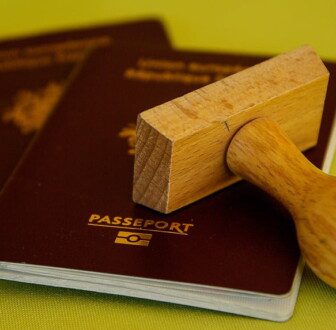- Exploring Shefis.com – Trending News & Sharp Headlines
- How Optimized Digital Solutions Are Enabling Collaborative Intelligence Across the Pharmaceutical Manufacturing Lifecycle
- Stmoro App – Download the Stmoro App for Exclusive Features
- Tips For Hiring Professionals For Interior And Exterior Projects
- The Science Behind Speed Measurement Devices
- How To Choose The Right Professional For Your Case?
- What’s In Fudholyvaz? Is It Safe To Use This Wellness Supplement?
- Why Businesses Are Turning Toward Streamlined Digital Assistance Tools

Unique Facade Solutions That Are Quietly Reshaping How Buildings Perform, Pay Back, and Endure
A building's front facing exterior is no longer just a wall—it is a high-tech filter and a critical touchpoint for value in modern real estate as it represents the intersection of structural integrity, energy efficiency, and aesthetic branding. However, there is a shift in how performance is measured. The real estate industry is shifting from the passive era of build-and-forget that largely focused on initial cost and curb appeal to optimized construction stewardship where the building envelope is treated as a dynamic financial asset. That’s where modern facade solutions become foundational in securing a building’s lifecycle profitability. Unlike traditional cladding that serves as a mere weather shield, the modern entrepreneur is looking for more than appearance; they are looking for traceability, climate resilience, and measurable ESG (Environmental, Social, and Governance) returns. 1. Alloy Precision as a Financial and Front Aesthetics Safeguard Most teams discover façade inconsistencies when it’s already expensive to fix. That’s not a technical failure—it’s a sequencing one. While the choice of metal facade is ideal, choosing the wrong grade or alloy can ruin the building’s look right at the finish line. Experts will provide insights that align with your preferences, whether it is a new construction, addressing a complex facade geometry, or renovations. For example, premium grade aluminum facade yields consistent results in structural integrity, visuals, and standards. Without this trifecta, a building is a high-risk gamble. Where this shows up in real projects: No last-minute panel rejection or resorting Stable aesthetics across phased developments Protection of brand and valuation on premium assets That is less about metallurgy and more about understanding where hidden costs usually leak—and closing them early. 2. When the Facade Becomes an Active System The traditional front face of buildings was a fixed boundary that simply separated inside from outside. Such static solutions no longer align with the dynamic demands of modern cities, climate realities, and evolving technologies, making it an outdated approach to building performance. Lightweight aluminum allows facades to respond to light, heat, and occupancy, without mechanical excess. Kinetic systems made from aluminum don’t rely on brute-force motors. Their efficiency comes from material intelligence: high strength with minimal mass. When designed properly, movement becomes subtle, reliable, and energy-conscious. Such a high-performance design strategy yields the following: Reduced dependence on HVAC systems Improved occupant comfort without operational complexity A building envelope that works with climate, not against it This is where design intent, engineering restraint, and operational savings align. 3. Traceability That Changes How Assets Are Valued A common financial trap many property developers and homeowners fall into is treating façades as sunk costs—expenses that end at installation rather than assets that continue to generate value over a building’s lifetime. Such an approach leads developers to making decisions that actually drain the building's value over time; like going for the cheapest materials to save money upfront (CapEx). However, that mindset is shifting fast. With material traceability, the exterior becomes something closer to a balance-sheet entry. Digital documentation—covering recycled content, embodied carbon, and material composition—creates clarity long after construction ends. It supports compliance, financing conversations, and eventual redevelopment strategies. Why this matters to serious capital: Cleaner ESG reporting with verifiable data Increased appeal to institutional investors Preserved residual value instead of demolition That isn’t about chasing sustainability labels. It’s about making future decisions easier, faster, and financially defensible. 4. Scale as a Thermal and Operational Strategy Choosing smaller panels often feels economical—until you account for what joints really cost over time. When using small panels to cover a massive surface area, you are essentially creating a "net" of thousands of tiny gaps. In professional architecture, every joint is a potential point of failure—for water, for heat, and for visual alignment. Every connection is a potential thermal bridge, maintenance point, and long-term liability. Large-format aluminum panels reduce those interruptions dramatically. When paired with proper thermal breaks, they don’t just improve performance metrics—they stabilize them. In practical terms: Fewer joints mean fewer failure points Improved airtightness and insulation continuity Measurable reductions in annual energy spend Scale here isn’t a design flourish. It’s a disciplined response to how buildings actually lose energy. In essence, the real advantage of a professional façade doesn’t come from just using aluminum—it comes from using it deliberately. Specialized façade strategies demand alignment of material choice, fabrication standards, ease of installation, and a clear projection of future performance across the building’s entire lifecycle. When materials are assessed and treated as systems rather than surfaces, your building’s frontage becomes more resilient, more valuable, and easier to justify to every stakeholder who comes after you. That’s where expertise quietly pays for itself.
Read More



















































































